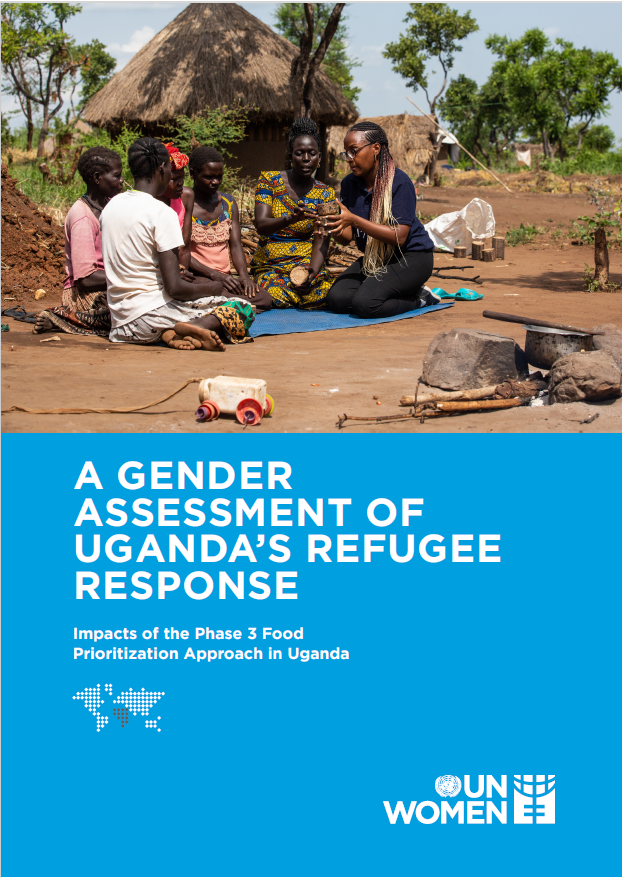
A gender assessment of Uganda’s refugee response - Impacts of the Phase 3 Food Prioritization Approach in Uganda

Uganda’s progressive refugee policy has provided a foundation for stability, but women and children remain highly vulnerable, particularly due to food assistance cuts since 2022. With 64 per cent of refugee households being female headed, the reduction in rations to 60 per cent has had severe consequences. A rapid gender assessment across eight districts, surveying 2,265 households and 44 key informants, evaluates the gendered impact of these reductions.
The assessment highlights how food cuts disproportionately affect people influencing access to services, gender roles, and coping strategies. The findings inform refugee response plans, particularly in the largest refugee settlements in Uganda. Despite hardships, refugee women have shown resilience and leadership.
Key recommendations include promoting climate resilient livelihoods, vocational training, and social protection mechanisms like cash for work and savings groups. Education initiatives should strengthen school feeding programs, support second-chance education, and offer vocational training in non traditional fields.
To improve accountability, biannual vulnerability assessments should ensure the reinclusion of at risk households, and better feedback mechanisms should enhance transparency. Protection measures must strengthen gender based violence (GBV) services, including legal, medical, and psychosocial support. Food security strategies should prioritize the most vulnerable women, introduce kitchen gardens, and incorporate community feedback into food distribution.
Further recommendations focus on improving water, sanitation, and energy access, fostering peaceful coexistence between refugees and host communities, and increasing women’s participation in leadership. Strengthening partnerships with local women’s organizations and providing training will ensure their voices shape humanitarian interventions.
View online/download
Order printed/published version
jack.abebe@unwomen.org